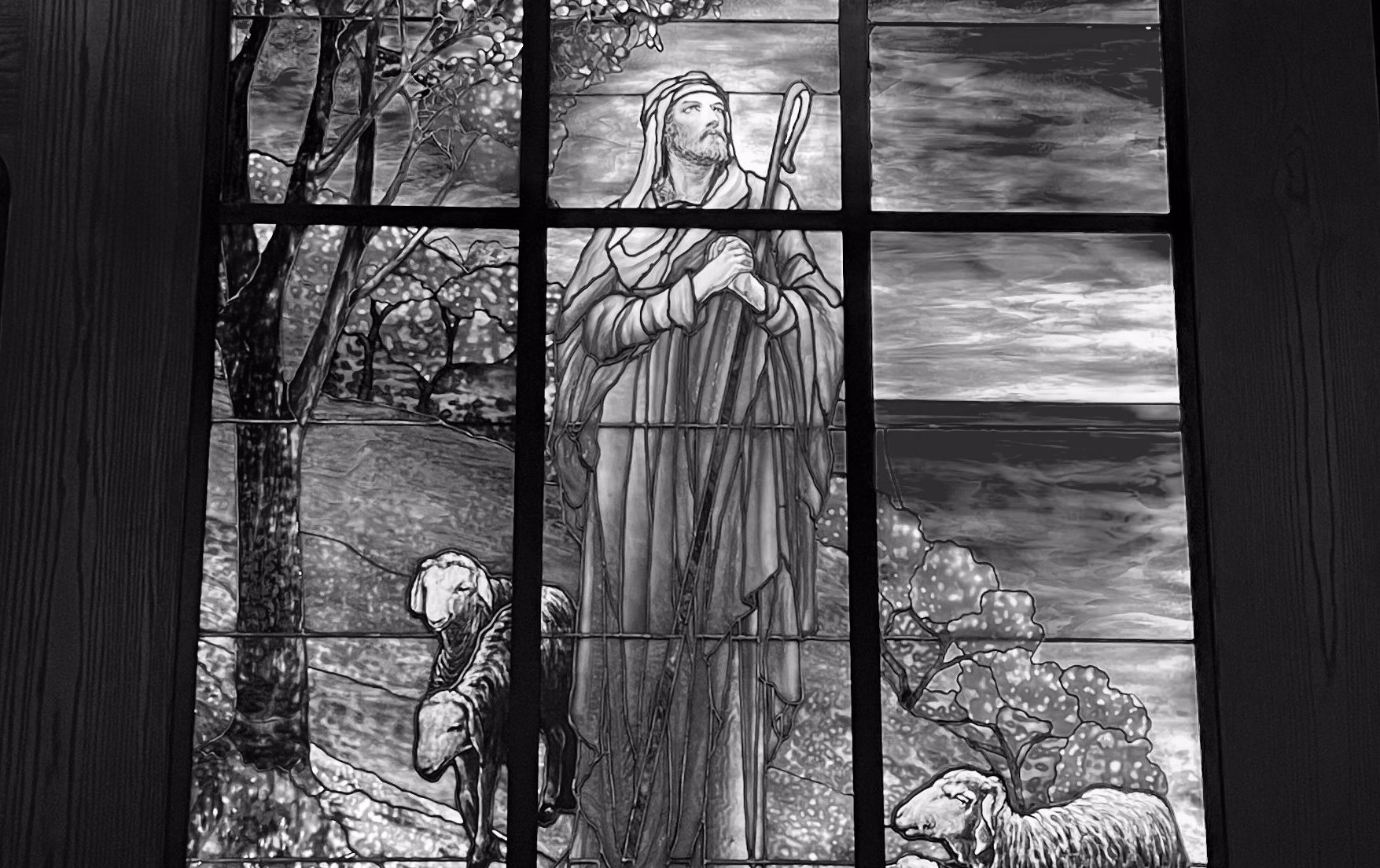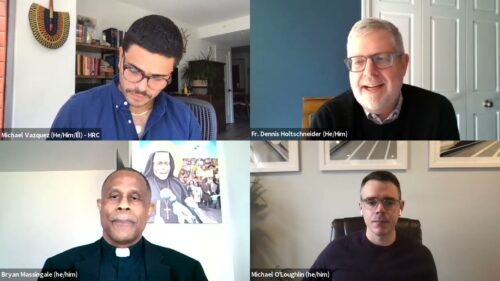A week ago, the whole world witnessed the outpouring of grief for the loss of our beloved universal parish priest and shepherd, our holy Pope Francis. Now that he is safely buried in the Basilica of Santa Maria Maggiore in Rome, the rat race for the Holy See is on. We have already seen—as has often happened in previous conclaves—politicking and betting on the papabili. Many are also concerned what this might mean for the church. To many it seems that with the high stakes of such a papal election, the church is at a crossroads: what will happen if we have a pope who favors one type of liturgy or social justice program instead of another?
Yet, for God, none of this really matters. God is neither this “faction” nor that “faction.” Remember what Paul told the Corinthians about the dangers of factionalism. Ultimately, it is God alone who gives growth (1 Cor. 3: 6). God is God, and as the pure embodiment of love, God is only interested in the movement of all creation towards fraternity, peace and justice— which is ultimately back towards God, the one and true alpha and omega of all creation.
How we humans in our fragility and limitation reach that goal—without destroying the world and its resources and the rest of humankind—is the crux of the matter. It matters not which vision of the church we endorse. It matters more, as Christians and humans, how much we become more Christ-like. However, the problem in the church is a millennial one and has divided the church since apostolic times.
Are we to stick to clear white-or-black rules as our markers of truth and the surest sign of God’s will in a world perpetually marked by confusion and plural visions of truth? Or, are we to seek a nuanced approach that is more acculturated to the concrete signs of the times and even adopt an “open” view of humanity and its future?
Are we to stick to clear white-or-black rules as our markers of truth or are we to seek a nuanced approach that is more acculturated to the concrete signs of the times?
Those sticking to the first position point out the risk of relativism where everything, including truth, becomes relative. Their critique is that if all absolutes dissipate, the possibility increases of individuals devising their own cocktail of truths that may be self-referential, self-interested and self-accommodating. These critics of greater nuance would point out that the antidote to this pervasive and dangerous relativism is a faithful and loyal attachment to unchanging absolutes not influenced by changing moods and views.
Those on the “other” side of the fence point out that the rigid and intransigent adherence to absolutes often ignores the person’s story and journey. It simply expects individuals to bear the cross of truth, notwithstanding the fact that these so-called “truths” inflict deep harm and terrible burdens on people—hardly anything that the God of love would allow.
Christ wanted nothing to do with any “ideological” extremes, and it is interesting that even Pope Francis often warned against this kind of ideological “trench warfare” in the church. Jesus was highly critical of the Pharisees who were sticklers of doctrinal intransigence but lacked compassion and humanity towards their fellow travelers on the earthly journey. Yet, Jesus was not a relativist and he called out those who tried to accommodate themselves alone with an abridged version of the truth.
Jesus’ way was neither doctrinal intransigence nor cheap relativism, but a creative third way: Come to me all ye who are weary and burdened, and I will relieve you, for I am humble and meek. Elsewhere, Jesus thanks his Father for not revealing the great mysteries of God to the rich and powerful, but rather to the humble and meek. Blessed are the meek, the poor in spirit, those who hunger and thirst for righteousness, the merciful, peacemakers and the pure of heart.
Jesus’ way was neither doctrinal intransigence nor cheap relativism, but a third way: Come to me all ye who are weary and burdened, and I will relieve you, for I am humble and meek.
The identity of the genuine disciple of Christ is humble and meek; one who seeks God in true freedom of spirit and yearns for righteousness. A disciple of Christ genuinely seeks out those on the margins and those who have been persecuted and considered undesirable. It is such a person who lives into the mystery of God and shares in God’s light. For many church goers, it is very tempting and easy to become arrogant, self-righteous, pretentious, self-referential, to feel indispensable and superior and even insensitive and scornful to the cries of the poor and marginalized, who is Christ living among us.
It is easy for any one of us to become blind and deaf to Christ incognito, walking in our midst. Uncovering our own personal hypocrisy and often self-referential double standards is not easy, but it is the first step towards walking in the light and recognizing the merciful face of God. It is not the intransigent Law nor the accommodations one can make that give us this sure path to Christ. The first key step is spiritual discernment.
Pope Francis was for us a good and holy example of following in God’s way. He neither embraced doctrinal intransigence nor was he a supporter of fanciful compromises. He was the apostle of mercy. He embraced humility, poverty, and freedom of spirit in an authentic spirit of true stewardship of God’s flock. Like his master, he looked out for the lost sheep. Like God the Father, he embraced both the “lost,” younger son, as well as the elder son who was both jealous and judgmental of the younger one. He championed spiritual discernment and showed us how to discover a new God’s light and the divine dew of mercy. He spoke for creation and reached out to all people of good will. He was a beacon of light in a world filled with Wild West-like pistoleros, gangster politicians and churchmen. He was indeed, like his namesake St. Francis of Assisi, an alter Christus, another Christ!
The identity of the genuine disciple of Christ is humble and meek; one who seeks God in true freedom of spirit and yearns for righteousness.
The cardinals have a difficult task this coming week. Theirs is not to find a champion of a particular ideology. Instead, their task is to find an authentic shepherd who is humble and meek and listens to God’s voice in the quiet stillness of his heart. A shepherd who is willing to suffer for and walk with his flock and who always reaches out to the poor and weary ready to give solace to them. To use Henri Nouwen’s phrase, this new universal pastor must be willing to be the wounded healer.
My prayer during this upcoming week is that all the church, especially the cardinals, may remain open to God’s guiding spirit and choose a shepherd whose heart closely resembles the Divine Heart of Jesus. I invite you to do just the same. May God’s chosen one come forth! Amen!



